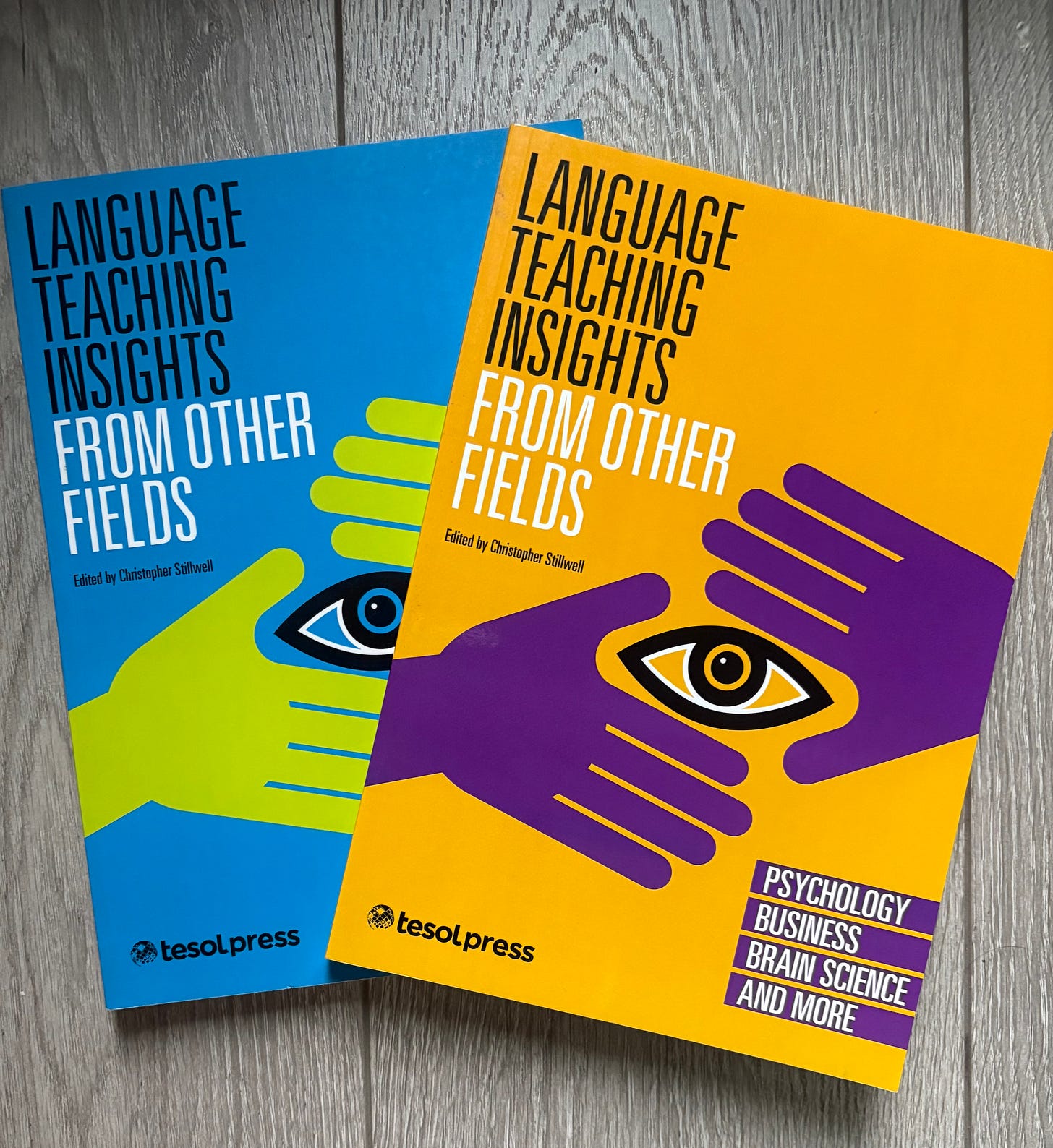What does yoga have to do with teacher development?
Listening to my yoga instructors makes me think of us language teachers.
Teacher development means change and change requires looking at ourselves and letting go of what we are to become a different version of ourselves in the classroom, to help our learners in various ways. This is the same principle in most of the things we do in life as we progress.
Those of you who are closer to me know that I believe we can only be whole, even if parts of us are more evident in different circumstances and scenarios. For instance, even if we are teaching English and focussed on helping learners, we are still the person that is fulfilled or the one who woke up more anxious than normal; the person who needs to pay the bills and the person who enjoys sunsets; the person who doesn’t like Friends (spoiler alert: this one is about me) and the one who’s passionate about visual arts. Much as we think we ‘just the teacher’ we are the full person and it comes out of our pores sometimes.
I started doing yoga to quiet my mind and be more mindful, less anxious and overwhelmed at work. I’m glad to say I generally am able to focus on the practice and my breath without falling. However, that doesn’t mean the instructors’ voices are not imprinted in my brain when I leave the studio. Those voices are inspiring and keep me reflecting about work from a different perspective. Here is some of the wisdom I’ve been exposed to and how I believe it applies to teacher development:
Dive forward with your heart first
It an everyday yoga instruction that keeps me awake later. Such a powerful piece of advice for us language teachers. Move forward with your lesson, with the course you are teaching and with your own development. But remember to bring passion, to cater for the affective needs of your learners, and of your own. Motivation is key to your growth, hence the heart coming before anything else to move you forward when you choose to develop as a teacher.
I make suggestions, you make decisions
Teacher educators, like yoga instructors, will give you advice, options, feedback. Action and change will depend on your decisions to take what serves you and what helps you thrive in your own context. The input you receive, even if it is extremely personalised and kind feedback is nothing if you do not want to act on it. Developing as a teacher is heavily dependent on your choices.
Maybe today is not a good day
Development is not linear. Sometimes you will feel your lessons went really well and you celebrate (please enjoy every victory, every step). You will teach great lessons, but also deliver others you may not be proud of. That is also progress. Not every day is a great day, but every day can be part of your progress. My yoga instructor reminds me that a bad day does not mean no progress, just a different step on the journey.
Embrace discomfort
Learning a new teaching strategy/ approach or how to work with different tools may sometimes push you far from your comfort zone. That’s where development is possible: where the uncertainty of the outcomes challenges your beliefs and forces you to learn what you had never considered. AI is here to help us accept yet another tool and its complexities, to explore the novelty of its possibilities and to adapt our classroom practice as needed. Challenges may cause discomfort, but healthy ones contribute to your professional growth.
Observe yourself, don’t judge
As in balance poses, teachers need awareness about their strengths and areas for improvement in order to grow. Jumping to conclusions that are often too critical may not help us move past the realisation of who we are as teachers and how far we can go. A bonus yoga lesson is: ‘be kind’. Kindness should first be directed at yourself. Whether you choose to keep a journal or to discuss your observations with a peer or a mentor, focus on where you are to grow from there.
I thank all my yoga instructors for their inspiration and I hope to take their advice as often as possible to keep developing. What are other thoughts that you connect with our field? Some others can be found in the book recommendations below. Let’s keep growing together.
Book recommendations for today:
Stillwell, C. (ed.) (2013) Language Teaching Insights from other fields: Sports, Arts, Design and more. Alexandria: TESOL Press.
Stillwell, C. (ed.) (2015) Language Teaching Insights from other fields: Psychology, Business, Brain Science and more. Alexandria: TESOL Press.







Loved the parallel. 🩷
I love the recommendations! Will look for them <3 and maybe it's time for me to go back to doing yoga!